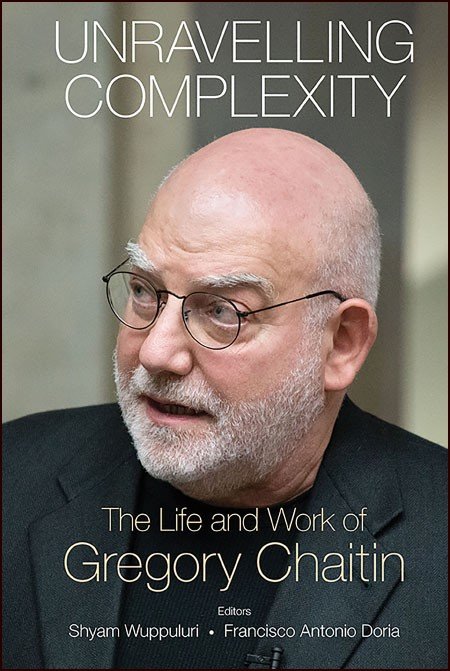Chapter 11: Compression is Comprehension and the Unreasonable Effectiveness of Digital Computation in the Natural World
This chapter is based on an invited talk delivered at the Workshop on Patterns in the World, Department of Philosophy, University of Barcelona on December 14, 2018.
Chaitin’s work, in its depth and breadth, encompasses many areas of scientific and philosophical interest. It helped establish the accepted mathematical concept of randomness, which in turn is the basis of tools that I have developed to justify and quantify what I think is clear evidence of the algorithmic nature of the world. To illustrate the concept, I will establish novel upper bounds of algorithmic randomness for Elementary Cellular Automata. I will discuss how the practice of science consists in conceiving a model that starts from certain initial values, running a computable instantiation, and awaiting a result in order to determine where the system may be in a future state — in a shorter time than the time taken by the actual unfolding of the phenomenon in question. If a model does not comply with all or some of these requirements, it is traditionally considered useless or even unscientific, so the more precise and faster, the better. A model is thus better if it can explain more with less, which is at the core of Chaitin’s “compression is comprehension”. I will pursue these questions related to the random versus possibly algorithmic nature of the world in two directions, drawing heavily on the work of Chaitin. I will also discuss how the algorithmic approach is related to the success of science at producing models of the world, allowing computer simulations to better understand it and make more accurate predictions and interventions.



